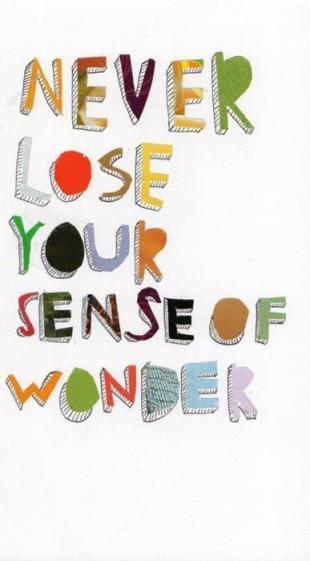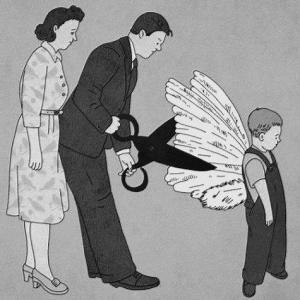
“The most beautiful thing we can experience is the mysterious. It is the source of all true art and all science. He to whom this emotion is a stranger, who can no longer pause to wonder and stand rapt in awe, is as good as dead: his eyes are closed.” ~ Albert Einstein
I spent much of yesterday writing. Poems. Patching little phrases and images together. Nesting words into patterns. Arranging and rearranging pieces of language. When I do this, I lose track of time. The clouds can shift from morning brightness to a late afternoon lull, and I don’t notice. I forget to eat. I forget where I am because, in fact, I am immersed in a world of language. It’s what Mihaly Csikszentmihalyi calls “flow.”
What happens in flow?
Csikszentmihalyi describes it as seven conditions or states of life.
- You are completely involved in what you are doing – totally focused and concentrated on the task at hand.
- You experience a sense of ecstasy - of being outside everyday reality.
- You feel a great sense of inner clarity – knowing what needs to be done, and how well you are doing.
- You know that the activity is doable – that your skills are adequate to the task.
- You feel a sense of serenity – no worries about yourself, and a feeling of growing beyond the boundaries of the ego.
- You experience timelessness because you are thoroughly focused on the present, so hours seem to pass by in minutes.
- You are intrinsically motivated to complete the task because whatever produces flow becomes its own reward (Flow: The Secret of Happiness).
As a child, it was easier to find this state of wonder and awe. I rode my bike for hours soaking up the simple pleasure of being outdoors, taking in the scent of lilacs and lavender. I learned to sew, to paint, to draw, to sing. All of these things were things I did purely for the pleasure of doing them.There was enough time. Stress and overwhelm were not part of my life. In fact, I routinely visited our backyard — in rural Eastern Washington state — and danced in circles, leaping and spinning and falling into the wet grass. That child — the child I was — loved to dance. She hadn’t yet been told that anything was impossible or unlikely. She still believed in miracles and possessed a hardy sense of wonder.
Grace. Wonder. Play.
And the thing is, forty years later, she’s still a big part of me. The magical child. The wounded child. The inner child. She’s still here.
And when I craft poems (or blog or write articles or edit or revise writing) she’s emerges from someplace deep inside me. She appears without guile or agenda. And we play. We play for hours and hours. She makes life good.
What got me thinking about this, this morning, was an image I saw on Facebook.

My heart caught in my throat when I saw it. I wanted to weep. In it, a young child’s parents are clipping their son’s wings. I thought about my nephews — who just turned three — the most wondrous creatures I know. My whole being ached thinking of them. I wanted to know in my very bones that this would not happen to them. That no one would clip their wings, strip away their sense of absolute wonder, and make them be realistic — which seems to be the code word for half dead.
We need wonder and awe. We need to realize that it is part of our birthright to wear our wings proudly. We each have a mission in this life. We have gifts and wisdom to share. If this were not true, we would not be here.
Fill Yourself with Wonder
So, in this troubled world in which we find ourselves, we must inhabit not only the state of grace, but also the state of wonder necessary to keep our spirits intact and moving forward. For me, poems do that. I invest in tiny symphonies of words. I browse and sort snippets of joy and wonder and sorrow.
I do it for the part of me that still dances at twilight, even if she’s not as limber or lithe as she used to be.
© 2013 Shavawn M. Berry All rights reserved
Feel free to share this post with others, as long as you include the copyright information and keep the whole posting intact.

